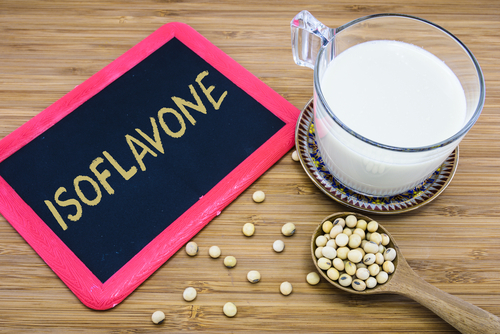A diet rich in soybeans, flaxseed, green tea, strawberries and other plants doubles a man’s risk of developing an aggressive form of prostate cancer, a study indicates.
Researchers found no link between the foods — which nutritionists consider healthy — and the development of non-aggressive forms of the cancer.
The Indiana University study, which appeared in the International Journal of Cancer, was titled “Dietary intake of isoflavones and coumestrol and the risk of prostate cancer in the Prostate, Lung, Colorectal and Ovarian Cancer Screening Trial.”
It covered three categories of plant-derived compounds called phytoestrogens that have properties similar to those in the female hormone estrogen.
One category is Isoflavones, which includes compounds such as genistein, daidzein, glycitein, formononetin, and biochanin A. They are mainly found in soybeans, kudzu root, and American groundnuts.
A second category is lignins, which includes the compounds matairesinol and seco-isolariciresinol. They are found in flaxseed, green tea, and strawberries. The third category of compounds, coumestans, is found in legumes, clover, and soybean sprouts.
Previous studies have suggested that consuming phytoestrogens could increase the risk of a woman developing certain types of cancer — breast cancer, for example. Phytoestrogens have a chemical structure similar to estradiol, an estrogen that is the primary female sex hormone.
Some research in animals has suggested that a diet rich in these compounds can reduce levels of the male horomone testosterone, and consequently the risk of prostate cancer. But in another study, researchers found that the prostate cancer of mice that were fed genistein not only increased but also spread to other parts of the body.
To obtain a better grasp of the compounds’ role in prostate cancer, the Indiana researchers studied thousands of patients’ consumption of plants containing the compounds. They did this with questionnaires that asked patients to report their consumption of the plants — except for lignans-producing plants.
The study covered 27,004 men for a median of 11 1/2 years. The team drew the patients from the Prostate, Lung, Colorectal and Ovarian Cancer Screening Trial (NCT00002540)
During the study, doctors diagnosed 2,598 cases of prostate cancer, 287 of which were advanced cases.
Matching the questionnaire results to the diagnoses, researcher determined that the top contributors to isoflavones consumption were tofu and soybeans, peas, and tea. The main sources of coumestrol were tea, beans, and soups.
High consumption of isoflavones doubled the risk that a man would develop an advanced prostate cancer, researchers found. Looking at the results by category, the team discovered that genistein increased the rise of advanced prostate cancer by 50 percent, daidzein by 80 percent, and glycitein by 67 percent.
The team failed to find significant associations between isoflavones and the development of non-advanced prostate cancer.
“Our study offers novel evidence that dietary intake of isoflavones has different effects on advanced and non-advanced prostate cancer,” said Dr. Jianjun Zhang, an associate professor at Indiana University’s Fairbanks School of Public Health, said in a news release. He was the senior author of the study.
“This observation is important for understanding the etiology [the causes of] and prevention of prostate cancer, but needs to be confirmed in more epidemiologic studies among populations with diverse dietary habits,” he added.
Epidemiology is the study of the patterns, causes, and effects of diseases in particular populations.

